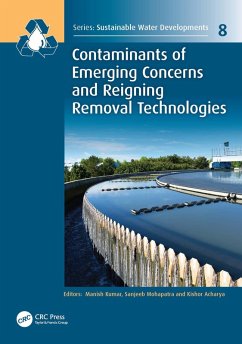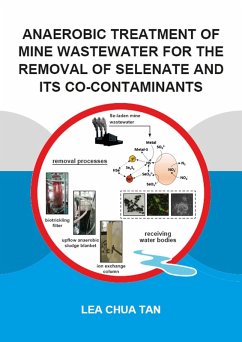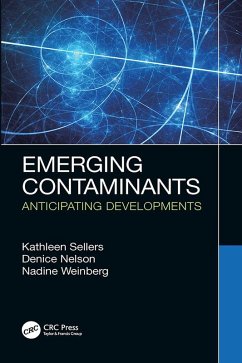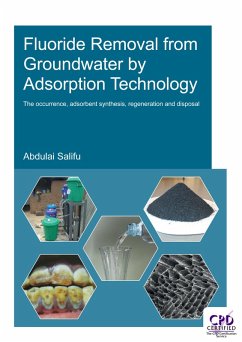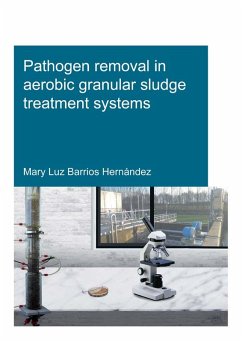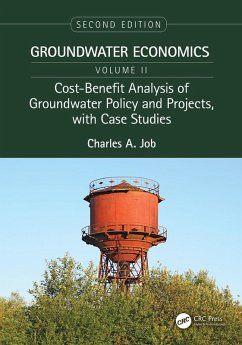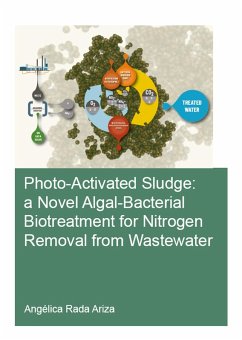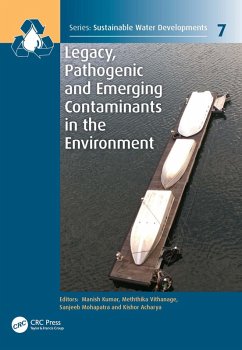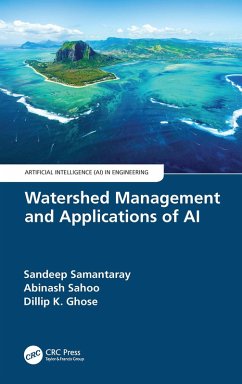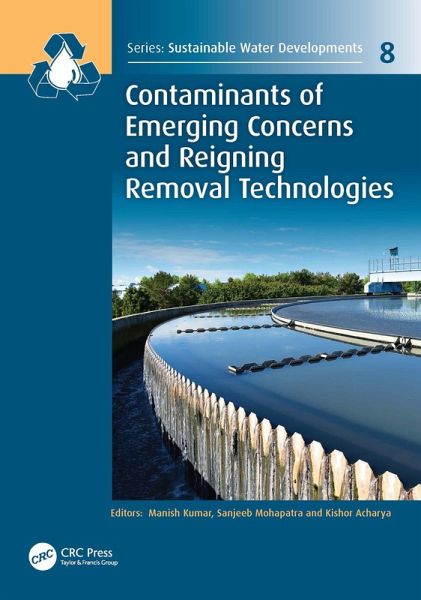
Contaminants of Emerging Concerns and Reigning Removal Technologies (eBook, ePUB)
Versandkostenfrei!
Sofort per Download lieferbar
173,95 €
inkl. MwSt.
Weitere Ausgaben:

PAYBACK Punkte
87 °P sammeln!
With an increased demand for wastewater reuse, groundwater recharge with treated wastewater has been practiced across the globe. As a result, groundwater quality deteriorates by emerging micropollutants from various anthropogenic origins, including untreated wastewater, seepage of landfill leachate, and runoff from agricultural lands. The fate of such emerging and geogenic contaminants in subsurface systems, especially in the groundwater, depends on several factors. Physicochemical properties of contaminants such as octanol-water partition coefficient, dissociation constant, water solubility, ...
With an increased demand for wastewater reuse, groundwater recharge with treated wastewater has been practiced across the globe. As a result, groundwater quality deteriorates by emerging micropollutants from various anthropogenic origins, including untreated wastewater, seepage of landfill leachate, and runoff from agricultural lands. The fate of such emerging and geogenic contaminants in subsurface systems, especially in the groundwater, depends on several factors. Physicochemical properties of contaminants such as octanol-water partition coefficient, dissociation constant, water solubility, susceptibility to biodegradation under anaerobic conditions, and environmental persistence under diverse geological and pH conditions play a critical role during subsurface mass flow. Thus, advanced wastewater treatment techniques, followed by implementing stricter guidelines, are some of the measures that can safeguard water resources.
This book, in general, gives an understanding of the fate and mitigation strategies for emerging and geogenic contaminants in the groundwater. The first and second sections provide a detailed insight into various removal techniques and mitigation approaches. Possible treatment strategies, including bioremediation and natural attenuation, are also covered in those sections. Environmental assessment, groundwater vulnerability, health effects, and regulations pertaining to various contaminants are systematically presented in the third section.
This book, in general, gives an understanding of the fate and mitigation strategies for emerging and geogenic contaminants in the groundwater. The first and second sections provide a detailed insight into various removal techniques and mitigation approaches. Possible treatment strategies, including bioremediation and natural attenuation, are also covered in those sections. Environmental assessment, groundwater vulnerability, health effects, and regulations pertaining to various contaminants are systematically presented in the third section.
Dieser Download kann aus rechtlichen Gründen nur mit Rechnungsadresse in A, B, BG, CY, CZ, D, DK, EW, E, FIN, F, GR, HR, H, IRL, I, LT, L, LR, M, NL, PL, P, R, S, SLO, SK ausgeliefert werden.




